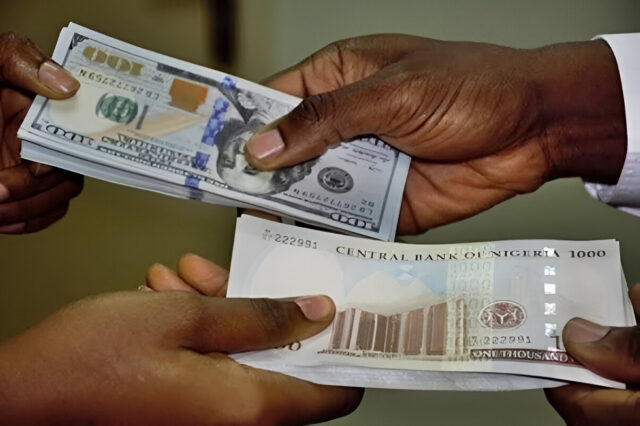Navigating the Naira-Dollar Crisis: Strategies for Stability and Growth 2024
In the midst of the Naira’s struggle against the dollar, the discourse surrounding foreign exchange policies has reached a fever pitch. The Central Bank of Nigeria is spearheading initiatives to shore up the currency and fortify the economy, a multifaceted endeavor capturing the attention of business and investment communities alike.
At the heart of the Central Bank’s strategy lies a dual focus: augmenting foreign reserves while combating inflation. Central to this approach is the promotion of policies aimed at stimulating foreign investment and nurturing local production to mitigate dependence on imports. This concerted effort represents a comprehensive bid to fortify the Naira and bolster economic resilience.
The ramifications of this crisis extend far beyond currency fluctuations, potentially eroding investor confidence and precipitating shifts in international trade dynamics. Implications for inflation and interest rates loom large, with ripple effects likely to manifest in sectors such as real estate, where fluctuations in foreign investment and property values may ensue.
In response to these challenges, the Central Bank has implemented targeted interventions, such as the Investor and Exporter (I&E) FX window, to enhance liquidity and foster exchange rate stability. Concurrently, initiatives promoting the utilization of the Naira for domestic transactions and the expansion of non-oil exports aim to diversify revenue streams and bolster economic stability.
However, concerns persist among citizens regarding the government’s approach to inflationary pressures. Expert opinions diverge on potential remedies, from interest rate adjustments and prudent monetary management to fiscal interventions such as subsidies and price controls on essential commodities. Striking a delicate balance between these measures is imperative to steer the economy toward equilibrium.
Diversification emerges as a cornerstone of Nigeria’s economic resilience strategy, with concerted efforts underway to bolster key sectors such as agriculture, manufacturing, and services. Export-oriented incentives, including tax incentives and grants, seek to enhance the competitiveness of Nigerian goods on the global stage, fostering a more robust economic foundation.
Yet, the efficacy of certain interventions, such as fuel and food subsidies, is called into question amidst escalating demand and logistical challenges. Price controls, while intended to alleviate consumer burdens, risk disrupting market dynamics, potentially leading to shortages and black market activities.
In conclusion, proactive measures by the Central Bank offer a beacon of hope amidst the Naira-Dollar crisis, signaling potential pathways to stability and growth. As stakeholders in the real estate and economic landscape, vigilance and adaptability are paramount in navigating the evolving terrain. Let us remain attuned to unfolding developments and seize upon opportunities for resilience and prosperity.

